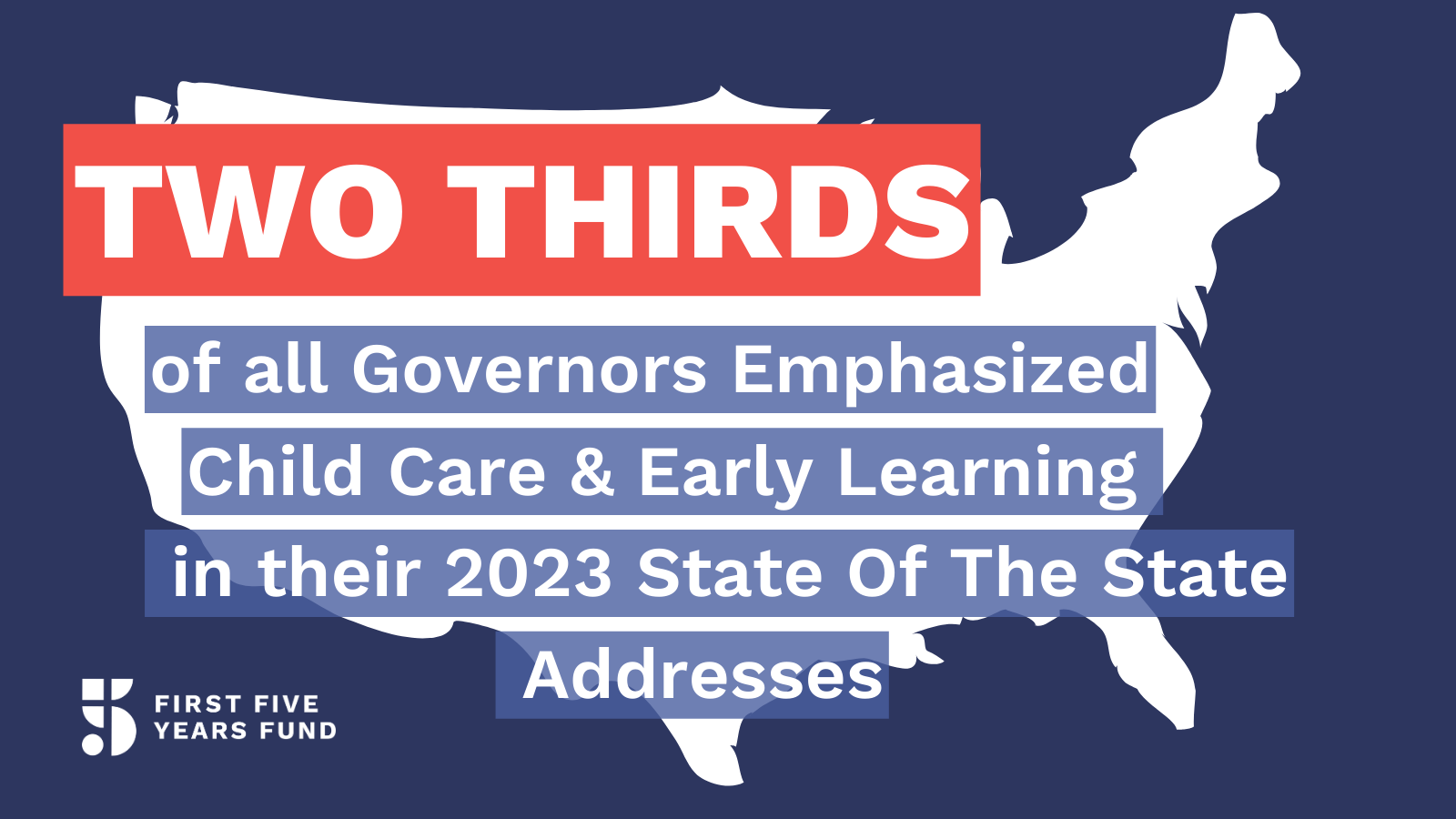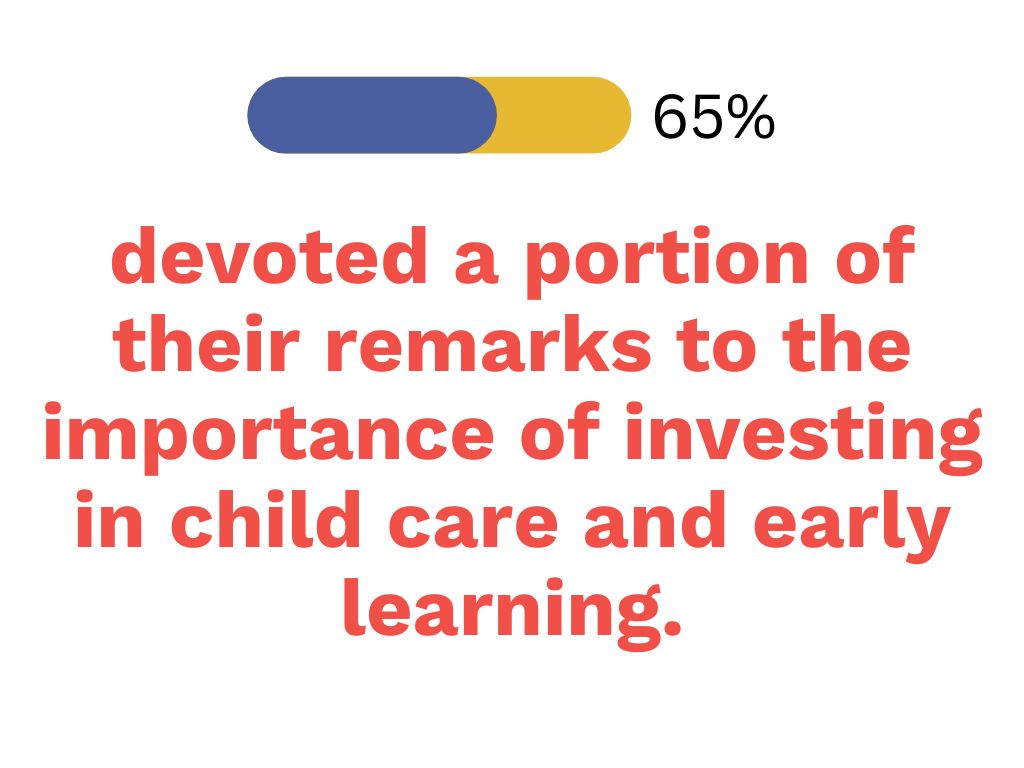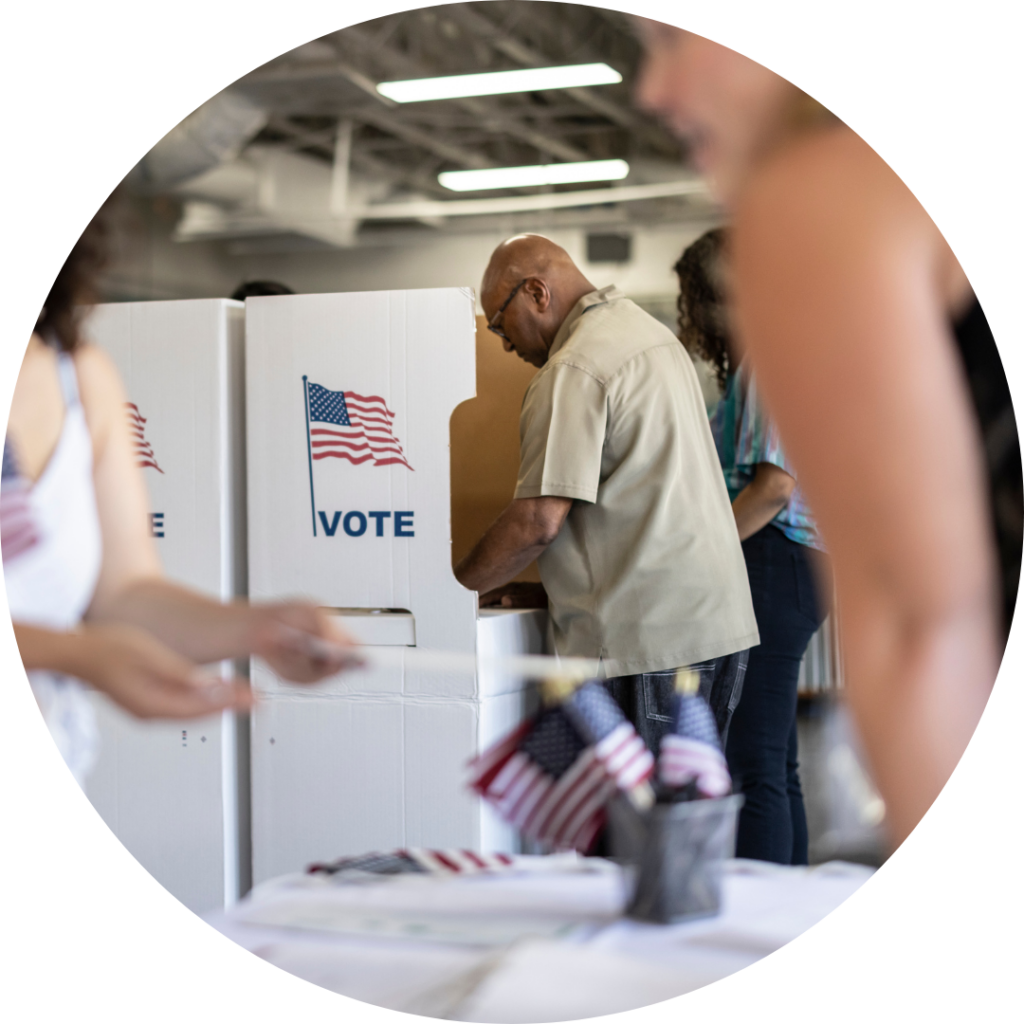Analysis: Majority of Governors Highlight Child Care As Key to Workforce Growth

Analysis of 2023 State of the State addresses given by Governors across the country found one issue in particular cut across state and party lines: the importance of fixing child care. The First Five Years Fund (FFYF) analyzed transcripts from all 35 Governors who delivered addresses by February 13, 2023, and found that two-thirds (65%) devoted a portion of their remarks to the importance of investing in child care and early learning. This analysis found:

- The issue was important on both sides of the aisle, with 40% of Republicans and 60% of Democrats talking about it.
- 30% of governors representing states that will be critical to the 2024 White House and Senate outcomes, including Arizona, Nevada, Wisconsin, Michigan, South Carolina, Ohio, and Kansas.
- And a 14% increase in the number of addresses devoted to child care from 2022.
Of those governors who specifically mentioned early childhood education as a critical priority:
- 91% detailed or acknowledged the urgent need for affordable access to child care;
- 73% highlighted that investing in and expanding child care and pre-K is one of the best ways to introduce, or reintroduce, parents into the workforce and help the economy;
- 60% specifically cited the high cost of child care as a problem holding back working families or the economy;
- One in four referenced the child care workforce, which is struggling to find, recruit, and retain new workers;
- And one in three specifically mentioned tax credits as a way to help offset the cost for working parents.
FFYF Executive Director released the following quote in response to the new analysis:
“It’s remarkable to see governors from every state, political leaning, or geographical location agree on one common thing: child care and early learning help parents go to work and grows states’ economies. From New York to North Dakota, our analysis makes clear that states’ economic success depends on elected officials on both the state and federal level helping parents find and afford the child care options they desperately need.”
The analysis comes shortly after President Biden delivered his State of the Union, which he used to highlight both child care and pre-K as essential to helping the workforce and future generations: “Let’s make sure working parents can afford to raise a family with sick days, paid family medical leave, affordable child care. That’s going to enable millions more people to go and stay at work.”
In Their Own Words
Here’s what governors from across the country are saying about the importance of child care and early learning:
Gov. Doug Burgum (R-ND): “Across our nation, businesses, governments, schools, churches, nonprofits and other employers are all struggling to hire and retain workers. These open and unfilled jobs are a reminder of our need to make good on our commitment to provide the appropriated $88 million in matching funds for private sector investment…It means investing in child care to make it easier for North Dakotans, especially young families, to participate in the workforce.“
Gov. Andy Beshear (D-KY): “It is also time – no, it is way past time – for universal pre-K. Universal pre-K helps young parents rejoin the workforce, while also ensuring every child is kindergarten ready.”
Gov. Kathy Hochul (D-NY): “As the first mother to lead this state, I know first-hand the impact that the lack of affordable childcare has on families. But as Governor, I also know the impact on the state’s economy. More than 35 years ago, I was working on Capitol Hill, for Senator Daniel Patrick Moynihan. I loved my job, but there were no affordable child care options available to me. So I had to put my career on hold to raise my children. It’s too often moms, in particular, who are forced to make this huge sacrifice.”
Gov Kristi Noem (R-SD): “I know that one of the biggest challenges that families in South Dakota face today is access to childcare. Families might have to go on a wait list for months. One parent may have to stop working for the time being. We also heard about their workforce challenges. We are going to help tackle this by making it more attractive to work in the childcare field. Currently, childcare providers struggle to give benefits to their employees.”
Gov. Michael Parson (R-MO): “We know child care remains a struggle for many parents and businesses. Child care providers often have to limit their hours due to staffing shortages or increase their prices…this poses a real challenge to parents as they weigh the decision to work or stay home. Prior to COVID-19, more than 50 percent of Missouri residents lived in an area with a shortage of child care. We know that problem has only worsened with one-third of facilities no longer open after the pandemic. We need to do better…for our parents, children, providers, and businesses.”
Gov. Henry McMaster (R-SC): “To increase the percentage of children who enter our public schools ready to learn, we unleashed the free market and expanded full-day, four-year-old kindergarten to all at-risk children in the state. Parents may now choose the public, private, or for-profit childcare provider that best suits their child’s educational needs.”
Gov. Mike DeWine (R-OH): “Many Ohio parents must choose between taking on full-time, full-year work or staying unemployed or underemployed, because they cannot afford the high cost of childcare. Through our budget, 15,000 more Ohio children in working families will have access to high-quality childcare — childcare that will help them start Kindergarten with the skills needed to succeed.“
Gov. Greg Gianforte (R-MT): “And speaking of child care, let’s make it more accessible and affordable. For too long, working families have faced a shortage. This problem was only made worse by the pandemic, here and throughout the country. It’s why we’ve invested over $100 million to help stabilize child care in Montana. It’s also why we’re eliminating unnecessary barriers to child care, so we can better serve our kids and provide them with the foundation for a better future.”
Gov. Tony Evers (D-WI): “But there’s another critical factor that affects our state’s workforce—and I hear about it everywhere I go, no matter which corner of the state I’m visiting. Fifty-four percent of Wisconsinites today live in a child care desert—where there are few to no high-quality options for child care in their neighborhood or community. And even if there is a nearby child care provider, it still might not be affordable for a working family.”
Subscribe to FFYF First Look
Every morning, FFYF reports on the latest child care & early learning news from across the country. Subscribe and take 5 minutes to know what's happening in early childhood education.



